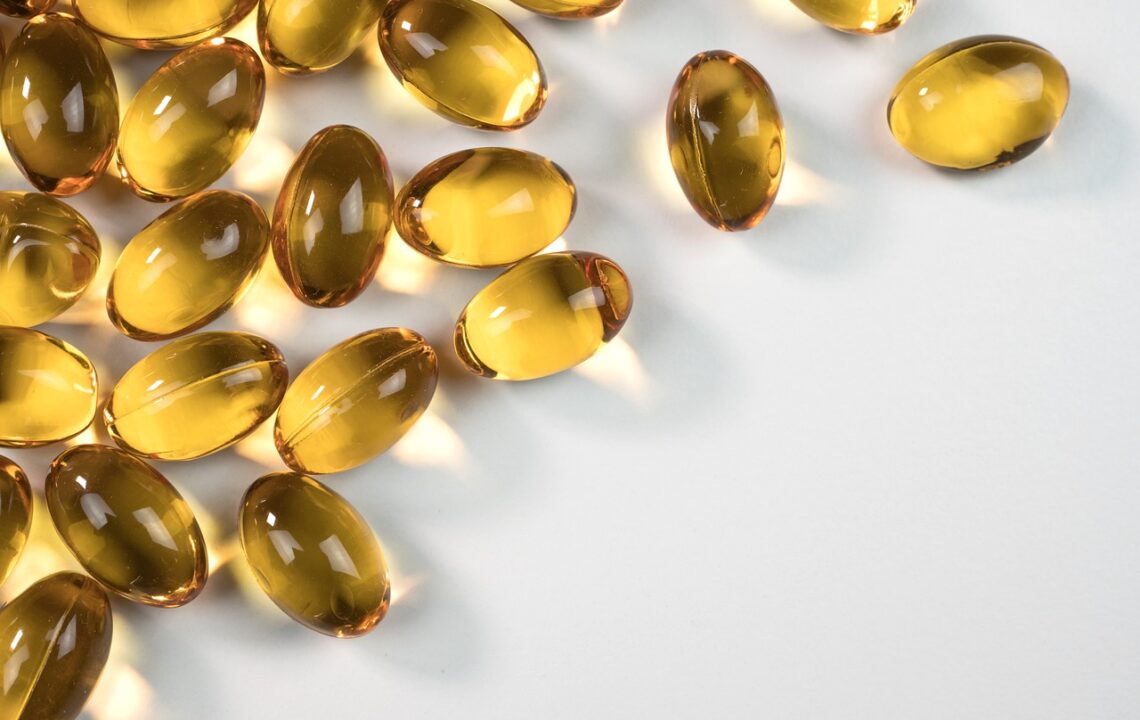Where fast-paced lifestyles and processed foods often dominate, men’s health can suffer due to nutritional deficiencies. From maintaining muscle mass to supporting cardiovascular health, supplements play a crucial role in optimizing overall well-being. For men, supplements are more than just an add-on to a diet; they are targeted solutions that can fill the nutritional gaps left by even the healthiest meals.
A significant percentage of men face nutrient shortages—77% don’t get enough magnesium, and 34% fall short on vitamin A, according to dietary surveys. These deficiencies can lead to low energy, impaired cognitive function, reduced muscle recovery, and even hormonal imbalances. But with the right supplementation strategy, men can improve their physical performance, boost testosterone levels, and protect their heart health.
In this guide, we’ll explore which supplements have proven benefits and the natural sources where you can find them.
What Exactly Are Supplements For Men?
Supplements for men are dietary products designed to provide nutrients that may not be consumed in sufficient quantities from food alone.These include vitamins, minerals, amino acids, and other compounds that target specific aspects of male health such as testosterone levels, muscle mass, heart health, and more.
Micronutrient Deficiency: Studies have shown that around 77% of men do not meet the recommended daily intake for magnesium and 34% for vitamin A . Supplements help bridge these gaps, ensuring that men’s bodies get the nutrients they need to function optimally.
Types of Supplements: These include multivitamins, herbal supplements, and targeted formulas such as those for prostate health, sexual vitality, or muscle recovery. Many men’s supplements are formulated to support their unique physiological needs—especially when it comes to hormone regulation and muscle repair, areas where men differ significantly from women.
Benefits of Supplements For Men
Nutritional supplements for men offer various health benefits, many of which are supported by clinical research. They aren’t a substitute for a balanced diet but can be particularly beneficial when dietary intake is insufficient or when specific health concerns arise.
- Enhanced Muscle Growth and Recovery: Men, particularly athletes or those who engage in physical labor, often need higher amounts of protein and amino acids. Protein supplements (like whey or plant-based proteins) can aid in muscle repair. Research suggests that consuming 25-30 grams of protein post-workout can maximize muscle synthesis.
- Boost in Testosterone Levels: Testosterone naturally declines with age, affecting mood, energy, libido, and muscle mass. Supplements containing zinc, magnesium, and vitamin D have been shown to support testosterone production. According to a study in the journal Hormone Research in Paediatrics, men with low testosterone who took vitamin D for a year saw a 20% increase in levels.
- Improved Heart Health: Heart disease remains a leading cause of death for men. Omega-3 fatty acids, such as those found in fish oil,have been shown to reduce triglycerides by up to 30%, helping lower the risk of cardiovascular diseases. Magnesium supplements also play a critical role in heart function and blood pressure regulation.
- Cognitive Function: As men age, cognitive decline becomes a concern. Supplements such as ginkgo biloba, omega-3 fatty acids, and B vitamins have improved mental performance and reduced the risk of neurodegenerative diseases.
8 Best Supplements For Men Found Naturally
While synthetic supplements can be convenient, nature offers a variety of nutrient-rich foods that provide essential vitamins and minerals.Here are eight supplements that can be found naturally and have a positive impact on men’s health:
Probiotics
Probiotics are live bacteria that support gut health, which is essential for men’s overall well-being. The gut microbiome influences everything from digestion to mental health. A well-functioning digestive system improves nutrient absorption, ensuring that men extract the maximum benefits from the foods they consume. Probiotics have been shown to reduce inflammation and enhance immune function by promoting a healthy balance of gut bacteria. Certain strains like Lactobacillus acidophilus have demonstrated efficacy in reducing symptoms of irritable bowel syndrome (IBS), a condition that affects 5-10% of men.
Natural sources of probiotics include fermented foods such as yogurt, kefir, kimchi, sauerkraut, and miso. A single cup of plain yogurt can provide between 1-5 billion colony-forming units (CFUs) of probiotics, depending on the brand and fermentation process.
Zinc
Zinc is a trace mineral that plays a vital role in testosterone production, immune health, and muscle repair. For men, maintaining adequate zinc levels is essential, as deficiency has been linked to reduced testosterone, impaired immune function, and slower wound healing.Men who are deficient in zinc can experience a 20-30% drop in testosterone levels. Zinc also acts as an antioxidant, helping reduce oxidative stress that can lead to chronic conditions.
Foods naturally high in zinc include oysters, lean red meat, pumpkin seeds, and spinach. Oysters contain the highest concentration of zinc,with about 74 mg per 100 grams, which is nearly 673% of the daily recommended intake (RDI). Lean red meat provides around 4.8 mg of zinc per 100 grams or 43% of the RDI.
Magnesium
Magnesium is a critical mineral involved in over 300 biochemical reactions in the body, including energy production, muscle function, and maintaining healthy blood pressure. For active men, magnesium is especially important for muscle relaxation and recovery after intense physical activity. A deficiency in magnesium has been associated with increased inflammation and a higher risk of conditions like cardiovascular disease. According to a review in the American Journal of Clinical Nutrition, nearly 50% of men do not meet the recommended daily intake for magnesium, which can negatively affect heart health and muscle function.
Natural sources of magnesium include leafy greens, nuts, seeds, and whole grains. Spinach provides around 79 mg of magnesium per 100 grams, or 19% of the RDI, while almonds offer 270 mg of magnesium per 100 grams, or 68% of the RDI.
Vitamin D
Vitamin D is crucial for bone health, immune system regulation, and testosterone production. However, many men, especially those living in colder climates, are deficient in this essential nutrient. Men with vitamin D deficiencies are more likely to experience lower testosterone levels and higher risks of bone fractures.
Men can obtain vitamin D through sun exposure, fortified dairy products, fatty fish, and egg yolks. For example, wild-caught salmon provides around 570 IU of vitamin D per 100 grams, which is 142% of the RDI, while fortified milk offers about 120 IU per cup, or 30% of the RDI.
Omega-3 Fatty Acids
Omega-3 fatty acids are essential for heart health, reducing inflammation, and supporting brain function. For men, omega-3s are especially beneficial in lowering the risk of cardiovascular diseases, which remain one of the leading causes of death. Omega-3 supplements can reduce triglycerides by up to 30%, significantly lowering the risk of heart disease.
Omega-3 fatty acids can be found in fatty fish like salmon, mackerel, and sardines, as well as plant-based sources like flaxseeds and chia seeds.A 100-gram serving of mackerel provides about 4,580 mg of omega-3s, covering 114% of the daily requirement. Flaxseeds, on the other hand, provide approximately 2,350 mg of ALA (alpha-linolenic acid) omega-3 per tablespoon.
Creatine
Creatine is a naturally occurring compound in muscle cells that helps produce energy during high-intensity exercise. It has been one of the most studied supplements for enhancing muscle mass, strength, and performance, especially in men.
Creatine is naturally found in animal-based foods like red meat and fish. A 100-gram serving of lean beef provides around 0.5 grams of creatine, while herring offers nearly 1 gram of creatine per 100 grams.
Boron
Boron is a trace mineral that helps in the metabolism of key nutrients such as magnesium, calcium, and phosphorus, which are essential for bone health. It also plays a role in hormone regulation, including supporting testosterone levels in men. Those who consume adequate boron have higher testosterone levels and improved cognitive function.
Boron can be found in foods such as avocados, raisins, nuts, and leafy greens. Avocados, for instance, provide approximately 2.1 mg of boron per 100 grams, which is about 19% of the RDI.
Ashwagandha
Ashwagandha is an adaptogenic herb used in traditional Ayurvedic medicine that helps the body manage stress. For men, ashwagandha has been shown to boost testosterone levels, improve muscle mass, and reduce cortisol, the body’s primary stress hormone. Men who took ashwagandha experienced an average increase of 15% in testosterone levels and significant improvements in strength after eight weeks of use.
Ashwagandha can be consumed as a supplement or found in root form in health stores. It is also traditionally brewed in teas or taken in powder form mixed with milk.
Who Can Take Supplements For Men?
Men of all ages can benefit from supplements, though their needs vary based on factors like age, activity level, and lifestyle choices. Here are some groups of men who may particularly benefit:
Athletes: Men who are highly active or professional athletes may require higher levels of protein, creatine, and BCAAs (branched-chain amino acids) for muscle recovery.
Older Men: Testosterone levels drop approximately 1% per year after age 30. Supplements like zinc, vitamin D, and magnesium can help support hormonal health.
Vegans and Vegetarians: Men following plant-based diets may find it difficult to get enough vitamin B12, iron, and omega-3s, and therefore benefit from supplementation.
Men with Dietary Restrictions: Those with food allergies or restricted diets due to health conditions (e.g., celiac disease) may need supplements to ensure they meet their daily nutrient requirements.
Who Should Avoid Supplements For Men?
While supplements can be beneficial, they are not for everyone. Certain groups should exercise caution or avoid supplements altogether.
Men with Pre-existing Health Conditions: Men with kidney disease, liver issues, or heart conditions should consult with a healthcare professional before starting any supplement, as high doses of certain vitamins and minerals can exacerbate these conditions.
Overconsumption of Nutrients: Some men may already get enough nutrients from their diet and risk over-supplementation, which can lead to toxicity. For example, too much vitamin D can lead to calcium buildup in the blood, causing nausea, kidney problems, and even heart arrhythmias.
Those on Medication: Men taking medications should be aware of potential interactions. For instance, St. John’s Wort, a supplement often used for depression, can interact with blood thinners and antidepressants.
Also Read:
Wrapping Up
Supplements for men can play an essential role in filling nutritional gaps and supporting overall health. However, they should be used judiciously and tailored to individual needs.
While natural sources of nutrients should be prioritized, supplements can offer significant benefits when dietary intake is insufficient or specific health goals need to be met. Before adding any supplement to your routine, it’s wise to consult with a healthcare professional to ensure it’s appropriate for your health status and needs.





